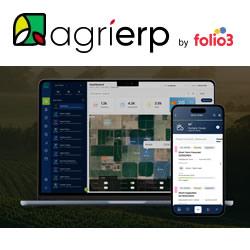Cognitive Pilot develops the world's first Open Dataset for autonomous agricultural machinery training
Cognitive Pilot (a joint company of Russia’s biggest bank Sberbank and Cognitive Technologies group), developer of AI-based autonomous driving systems for ground transport, and Peschanokopsky Agrarian Group announce the opening of a testing facility for autonomous agricultural machinery (self-driving harvesters, tractors, sprayers etc.).
Cognitive Pilot (a joint company of Russia's biggest bank Sberbank and Cognitive Technologies group), developer of AI-based autonomous driving systems for ground transport, and Peschanokopsky Agrarian Group announce the opening of a testing facility for autonomous agricultural machinery (self-driving harvesters, tractors, sprayers etc.). Apart from this, these two companies are creating the world's first Open Dataset for autonomous agricultural machinery training, called ‘Cognitive Agro Dataset'.
"We are ready to provide Cognitive Pilot with our skill and knowledge in agricultural business, as well as our resources for solving the industry's most vital tasks. In fact, we are opening Russia's first training facility for autonomous agriculture machinery," says Vladimir Yalovenko, Peschanokopsky Agrarian Group main shareholder and Board member.
The Peschanokopsky Agrarian Group is one of the biggest agricultural companies in Russia's Rostov Region with a land use of more than 35 thousand hectares. The group has three divisions whose main activity is grain and industrial crops cultivation. The company's farm machinery fleet consists of more than 200 specialised agricultural vehicles.
"It's one of the most advanced agricultural holdings in the country in terms of the use and implementation of innovations," adds Olga Uskova.
The availability of such an open database with real conditions data is the key to successful development of any autonomous transport control system. "It's impossible to create an autonomous driving control system without a representative training dataset. Such datasets help developers train neural networks and guarantee effective operation of the entire self-driving control system. As practice shows, synthetic datasets - with data modeled or enriched artificially - are less effective than ones with real data. That's why developers highly praise datasets collected in real conditions," comments Olga Uskova.
In the sphere of self-driving cars such open datasets already exist and are actively used, but in the agricultural sector, until now, there have only been a few datasets for some local tasks like spraying. The Cognitive Pilot project is the first attempt to create an integrated mechanism for sectoral developers worldwide.
"We plan to create the world's largest and most representative database for smart agriculture," says Olga Uskova.
The Cognitive Agro Dataset will include images and clips from video cameras and data obtained from odometer and inertial sensors installed on autonomous machinery.
Previously the data has been collected within Russia only, in the regions where the company tests its autonomous driving technology: the south, north and the central parts of the country. Since last year, the company has collected data in Brazil too. In 2020 it is expected that the United States, Canada, China, Argentina and South Korea will join the list.
"The main works are going to be held in conjunction with the harvesting cycle worldwide, and we hope that the coronavirus pandemic will not prevent us from carrying out our tasks," admits Uskova.
The developers plan to complete the work and publish the results at the beginning of next year. The dataset will consist of eighty thousand 10-second videos. Such short duration of the recordings is due to the many and varied field scenes and for the convenience of developers.
On average, developers spend up to 2 million USD on collecting and acquiring representative datasets for their neural network training. All information contained in Cognitive Agro Dataset is intended for non-commercial use.
Featured Product

